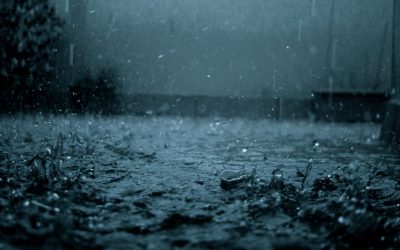By
Ibeh Leonard Ebuka
The rains came in late January. It started with a light drizzle at first, falling slantly across the corridor of the many dilapitated buildings in the now deserted village of Ohafia. The rain itself was a mystery. A benign mystery. A rain falling in that harmattan season, startling everybody in the village including Onwuzuruike, the self acclaimed rain maker who used to do very well before the war broke out. Of course, everyone lived normal lives before the war broke out.
Urenne sat there, watching from her window the slanting rains which drummed rhythmically on the leaking roof. The rains landed with ease and grace as though oblivious of the fact that ‘death’ was no longer a strange terrifying phenomenom and that the smell of bombs and blood overpowered the smell of faeces.
The war was over.
It sounded quite illogical, a little bit too good to be true. The thought that there would be no more sound of shelling, and bombs, and gunshots, and no more smell of death, and of blood, of fear made Urenne to be filled with relief and dissapointment. A strange kind of dissapointment she did not entirely understand.
Outside, she could hear the faint voices of children running about, shouting, and of the loud-mouthed women singing in unharmonious voices, stopping every now and then to argue about who predicted the rain and who did not. It filled her with a faint sorrow to think about the children that had been vibrant and loud and lively just three years ago, and now even their shouts sounded like a tiny squeak.
She knew what would follow after now. She could hear Patrick clearly from her room, the lecturer who had fled Nsukka when the vandals invaded. He was telling his daughters to start getting their things ready for evacuation.
Urenne sighed. Life would never remain the same again. She had come to accept this fate, this routine of deaths and burials. This routine of fleeing from village to village at the sound of each shelling. Mama Nkeiru’s voice was louder than others, as usual. She was leading the women in mourning the loss of Biafra.
Urenna got up and walked with wobbly feet to the corridor of the house, which she shared with a few strangers. The rain was still drumming on the roof of the house.
Patrick stormed out of his house, and shouted at the women in swift Igbo.
“What are you people singing? Are you out of your mind? Who told you we lost the war? Gowon said-No victor, no vanquished”.
“Eziokwu? Is that true?” Nwanyieke asked, a slight old woman, so thin that Urenna worried she would easily snap into two anytime from now.
“Imaro? Don’t you know?” Patrick shouted at her, then went on to tell the women about the gallant bravery of the biafran soldiers while the women listened in awed interest.
Urenne turned away, deciding not to listen. What was there to hear anyway? And what did he mean by that empty, hopeless statement ‘No victor, no vanquished’? Couldn’t he be intelligent enough to know that Gowon had said that as a way of mockery? How could he repeat that empty expression before this broken women? The charred remains of humans lined up the streets, and people hardly burried their loved ones anymore because there was no more energy left to dig up graves. The rain had refused to fall in its seasons, as though aware that children only experienced growth in their stomach, and that the hair that grew on people’s heads was no longer black, and that people no longer cried so much when their loved ones died because ‘death’ was now a phenomenom so extravagant that it gradually became part of everyday living. Just last night, Amara had lost her twin children to hunger and kwashiokor. She whimpered, but could not cry because even the tears refused to come out.
When Patrick finished his staid speech, the women, almost drenched in the rain, turned to look at one another, their eyes suffused with hope. Then they looked up at the clouds in silent unison. A swift thunder swept throught the clouds, and with it, came a finality. The war was truly over, and life had just begun.
Amara was free to cry now.
Urenne turned, and walked back to the house.


